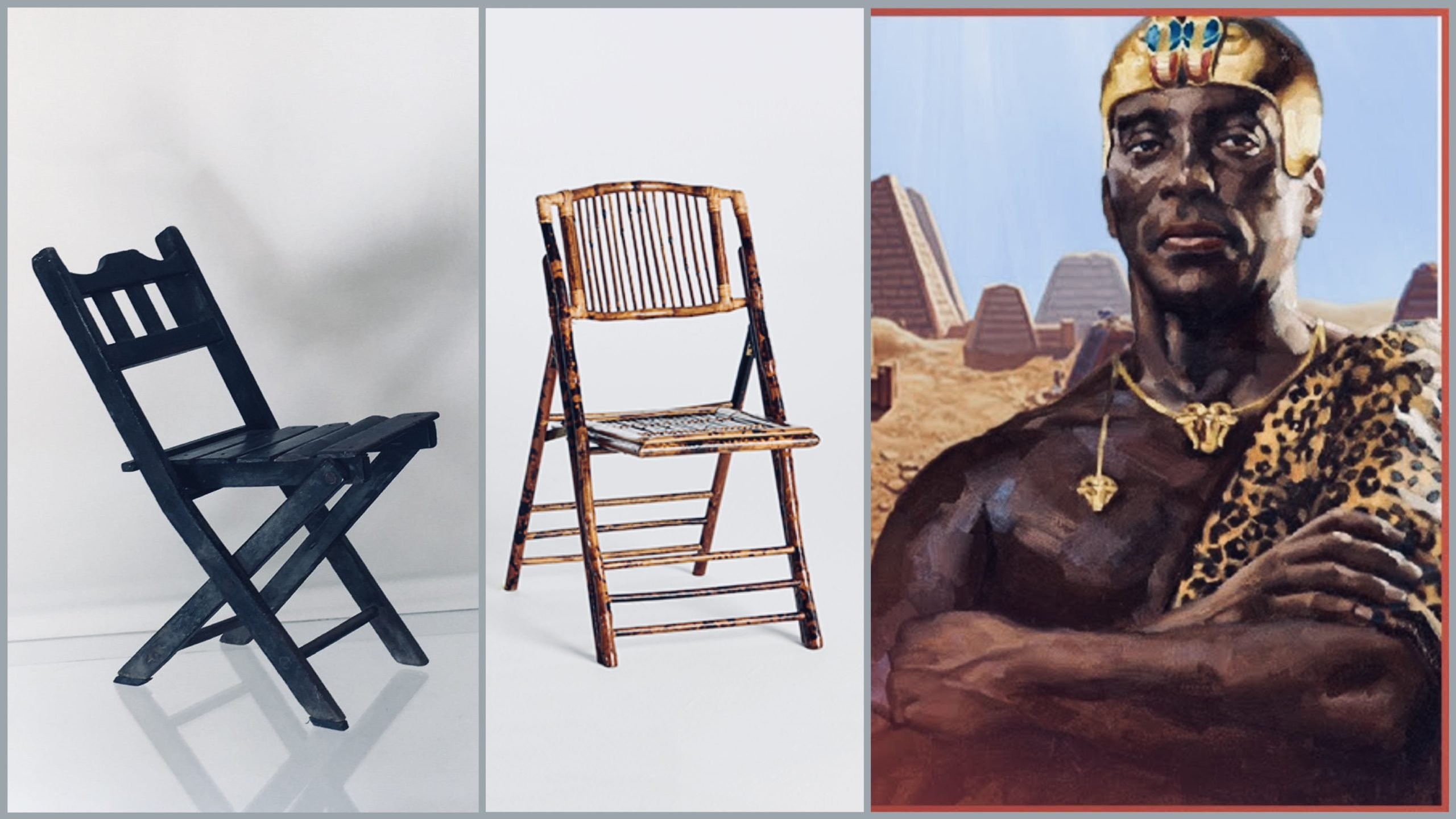The folding chair’s origins trace back through time, highlighting human innovation. Its inception remains uncertain, yet ancient Egyptians emerge as pioneers, showcasing practicality and artistry in furniture design.
Ancient Egyptian Lifestyle and Furniture
Thriving along the Nile, ancient Egyptians left a cultural legacy of architecture, technology, and furniture. Their furniture, both functional and symbolic, demonstrated a mastery of space efficiency and adaptability.
Invention of the Folding Chair
Addressing the need for portable seating, Egyptians designed folding chairs for ceremonies, gatherings, and outdoor events. They harmonized comfort, convenience, and aesthetics seamlessly in their creations.
Materials and Construction
Local materials like wood, reeds, and leather crafted these chairs. Lightweight yet robust, their ingenious design included intricate detailing, embodying Egypt’s commitment to artistry in everyday objects.
Design and Functionality
Incorporating hinges and joints, ancient Egyptian folding chairs balanced stability when used and effortless storage when folded. Their practicality made them integral to daily life, reflecting Egypt’s advanced engineering.
Cultural Significance
Beyond functionality, folding chairs symbolized status and hospitality. Used in ceremonies and events, they denoted social hierarchy. These chairs encapsulated the intersection of practicality and culture in Egyptian society.
Legacy and Influence
The folding chair’s impact resonated across civilizations, shaping furniture design. Its concept evolved and adapted, contributing to today’s diverse array of folding chairs, a testament to ancient Egyptian ingenuity.
Egyptians’ invention of folding chairs illuminates their mastery of design and utility. These chairs, transcending time, mirror the enduring influence of ancient civilizations on innovation and design globally.
 The African History Truly African
The African History Truly African

